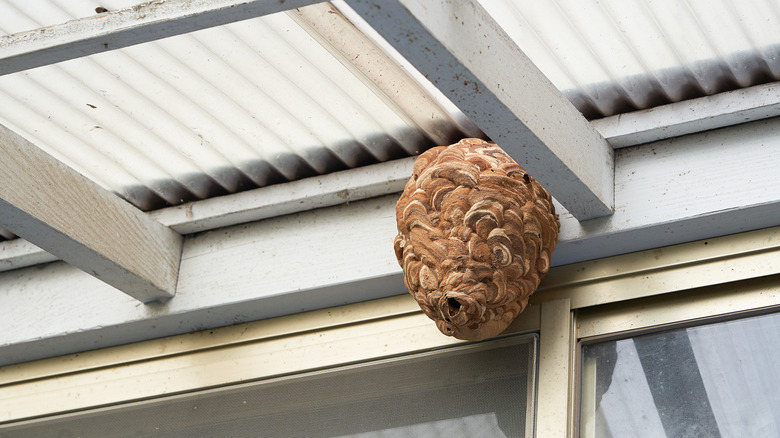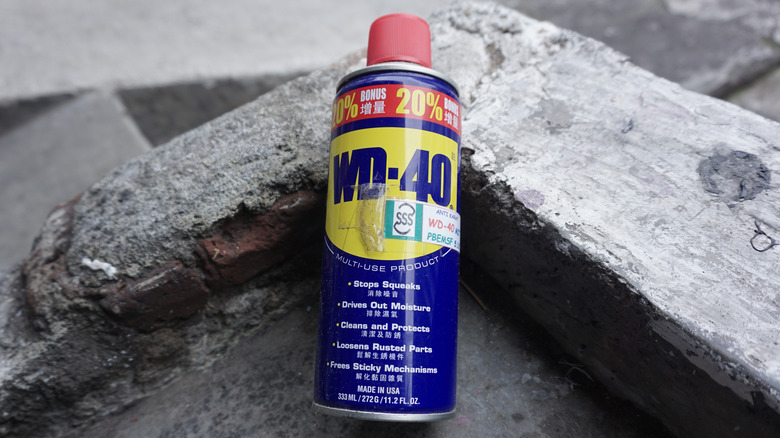Wasp Nests Will Be A Thing Of The Past With This WD-40 Hack
Wasp nests can be a troublesome and potentially dangerous presence around our homes and outdoor spaces. Dealing with these pests requires effective solutions that ensure both safety and efficiency. This simple yet ingenious hack uses a common household staple – WD-40, a versatile product that can help keep your surroundings wasp-free. WD-40, known for its lubricating and penetrating qualities, also possesses repellent properties that can deter wasps from building nests near your living areas. A light, even spray of WD-40 on eaves, overhangs, window sills, and other susceptible spots forms a barrier that hinders the wasps' ability to adhere their nests to surfaces.
Unlike many commercial insecticides, WD-40 is relatively non-toxic to humans and pets, making it a safer option for pest control around homes. WD-40 is a cost-effective alternative to specialized wasp repellents. A single canister can serve multiple purposes, from household maintenance to pest control. Moreover, the spray nozzle on WD-40 cans enables precise application, allowing you to target specific areas without creating a mess.
How to use WD-40 effectively
Inspect your property to identify potential vulnerable areas that would make good nesting sites. These can include trees, overhangs, window sills, and corners. Remove any abandoned nests cautiously if needed, taking necessary safety precautions, then ensure the area is clean and dry before applying WD-40. Hold the WD-40 canister away from the surface and spray a light, even coating. Pay particular attention to areas that have attracted wasps in the past, or wherever you have noticed them gathering.
Reapply the solution every few weeks or after rain, as its effectiveness might diminish over time. Keep an eye on the treated areas and observe if wasps continue to frequent them. If necessary, apply additional coats to reinforce the barrier. As summer approaches and wasp activity peaks, employing the WD-40 hack can be a game-changer in maintaining a wasp-free environment around your home. By utilizing this simple, non-toxic solution, you can effectively deter wasps from building nests and minimize the risks associated with their presence.

